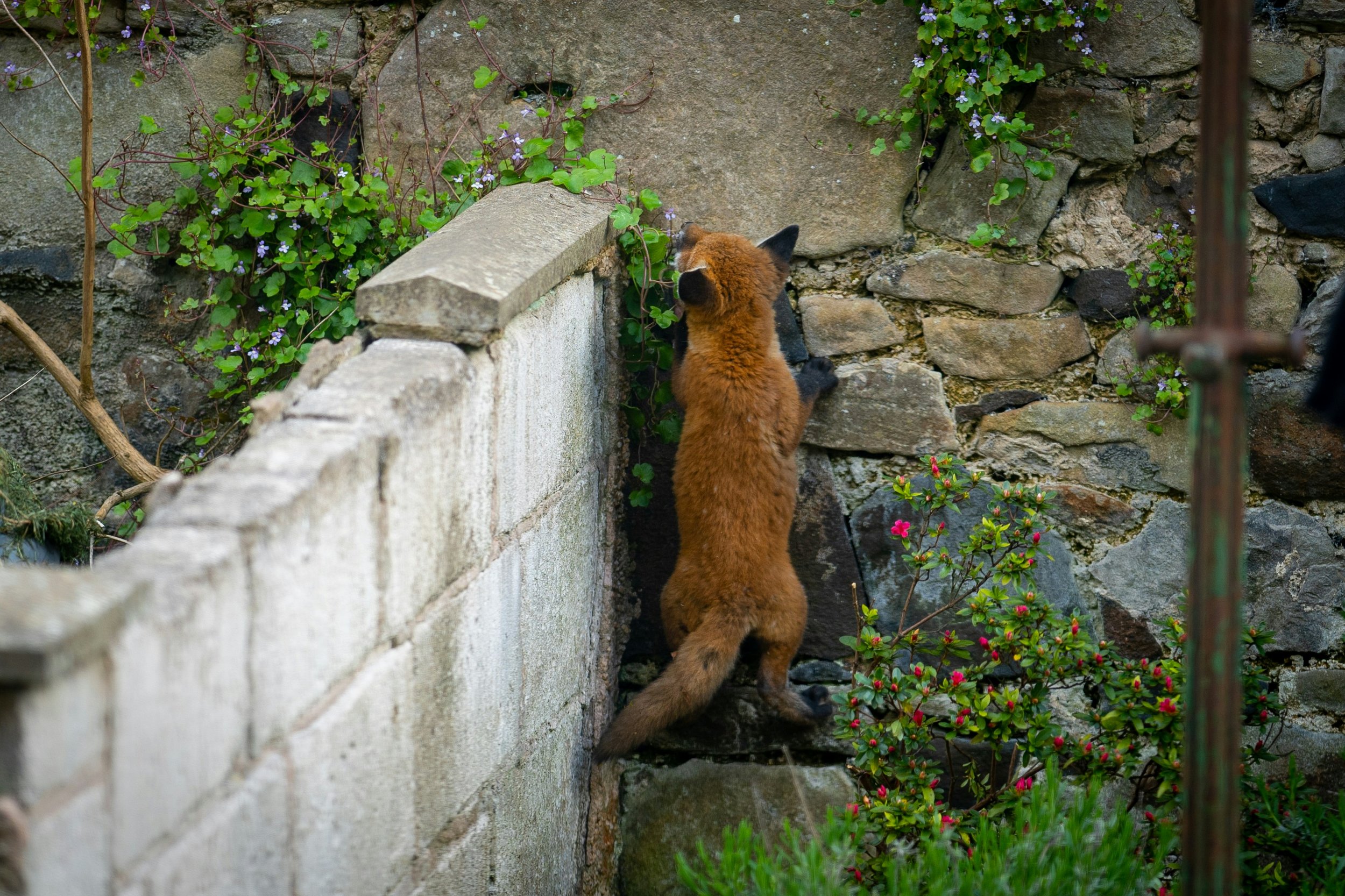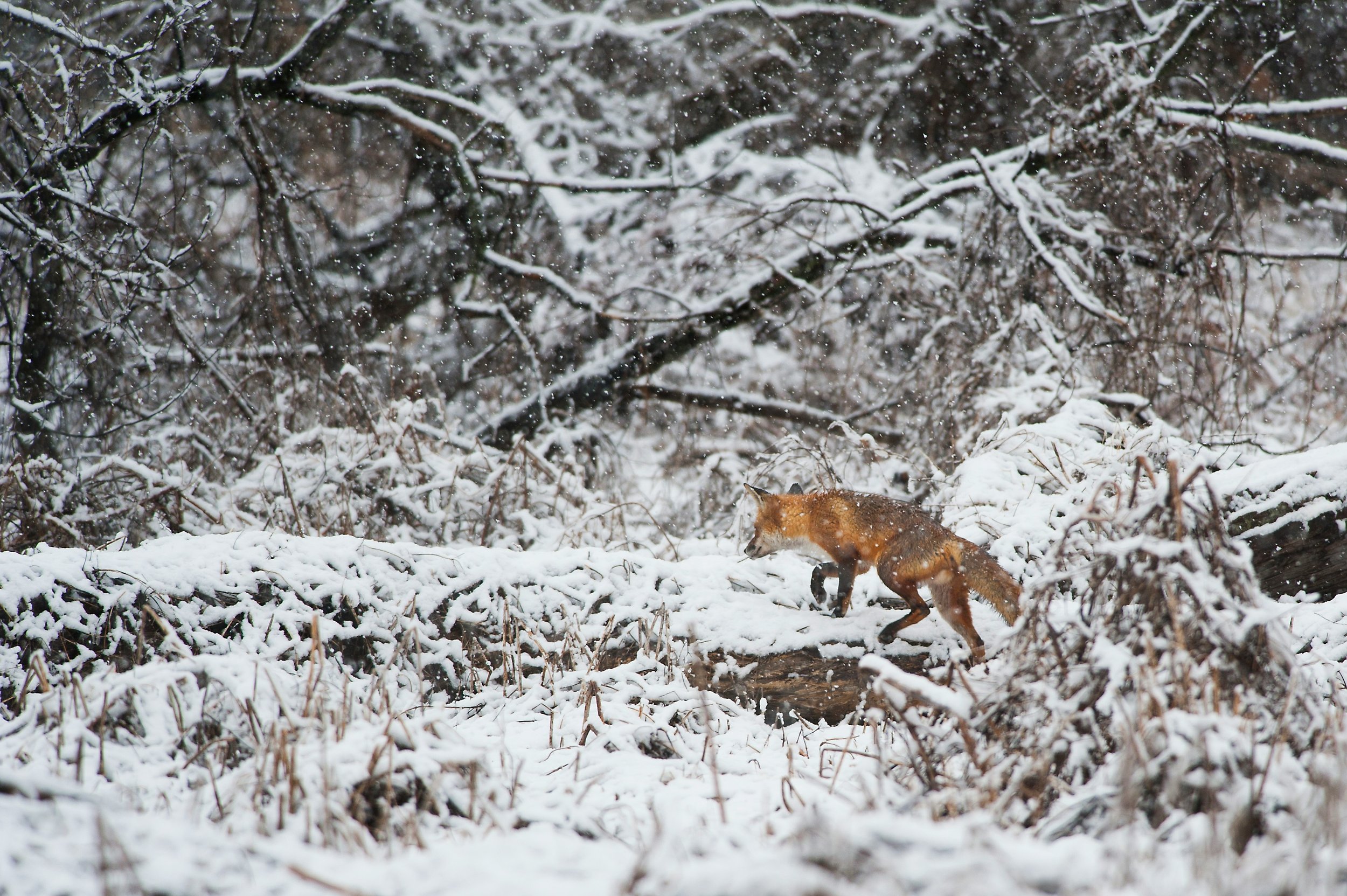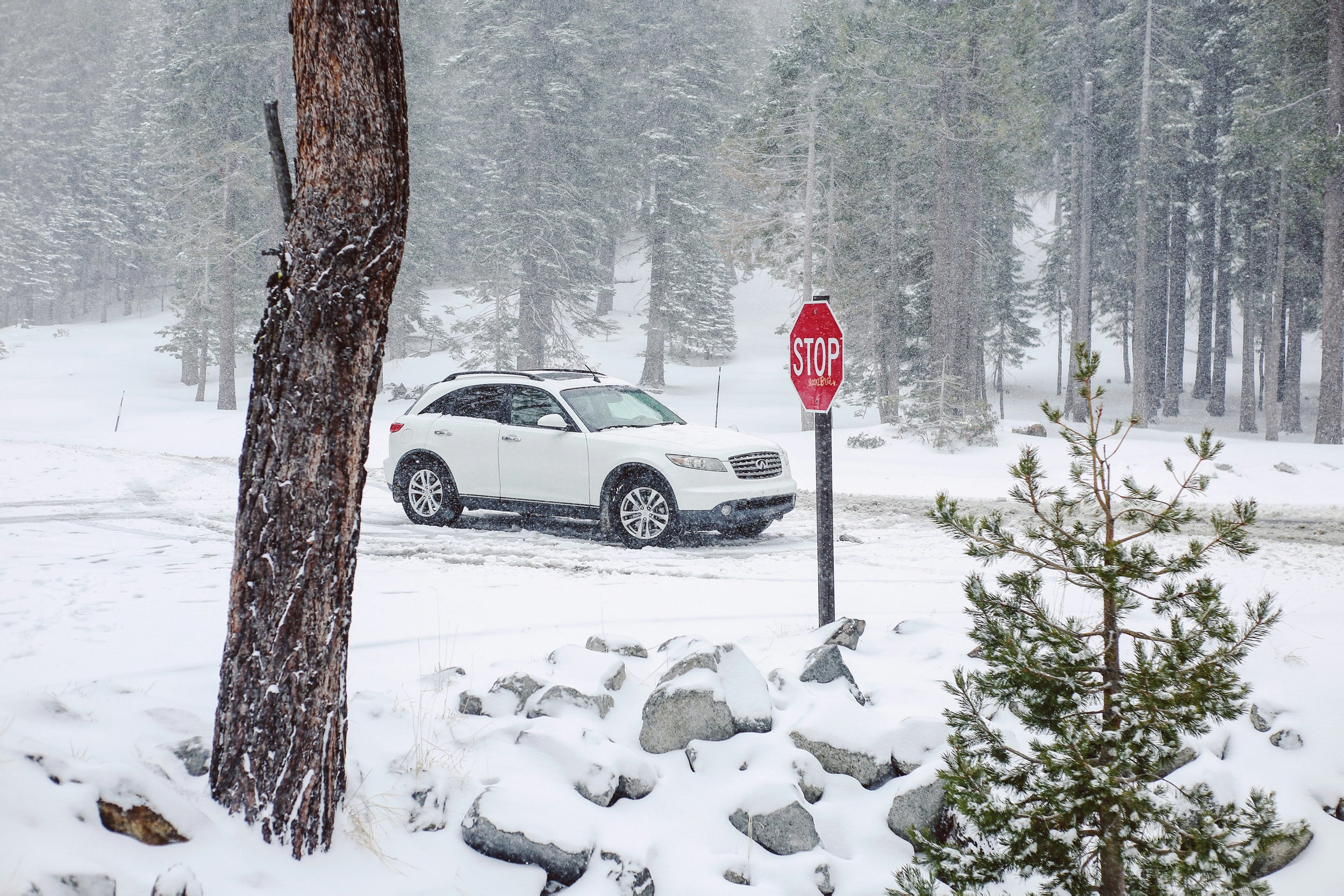Helping Wildlife Through Winter
Mid-Winter is upon us, and there are things we can do to help our winter dwelling wildlife get through til warmer days. Without further ado, here are some ways we can help:
IT’S FOX MATING SEASON!
You might be hearing the sometimes-unnerving screeches and calls of foxes as they seek a mate and ward off potential rivals. December through February is when UK foxes mate, with March/April bringing from 2-4 cubs following successful mating.
There are a few things you can do to help foxes as they embark on “family life”.
Eyes on the road! As foxes seek mates, they may run across roads more than usual, darting in front of moving cars. Driving slowly around blind corners and keeping eyes closely on the road can help avoid a tragic accident.
Avoid disturbing dens: If you’re fortunate to have foxes in your area, you may find a fox den (called ‘earths’ or ‘burrows’) dug under a shed, patio, or other hidden places in your garden. If you find one, don’t fill it in! Avoid working in spaces where foxes are raising their cubs in dens and wait until late summer when the cubs have left the den. A mother fox (vixen) often has a second den to move cubs to for safety, so if work must be done she can be encouraged to move by being an annoying neighbour walking around the den. But always best to give her space to raise her cubs and enjoy watching from a distance!
Avoid using harmful chemicals & poisons: Slug pellets, chemicals, and rodenticides can be fatal to foxes if ingested. For the sake of all animals, avoid use of all things toxic where they might come into contact (see our rodenticides page with the harmless natural alternatives).
Avoid the temptation to feed foxes: Not everyone loves foxes and encouraging them to become human-friendly can be to their detriment, altering the natural foraging/hunting behaviour of the foxes. There is no law against feeding foxes so if you cannot resist the temptation, ensure you do not give harmful foods such as chicken bones, raisins, grapes, or sugary foods.
Put the nets away! Getting caught in nets is all too common for wildlife. Last year the RSPCA received 2,280 calls about animals caught in football nets, with fox cubs often strangling themselves to death while trying to get free.
Help keep them safe by putting the nets away when not in use and look for alternatives to garden nets which are also harmful to wildlife.
If you see a fox that looks malnourished or injured, contact your local wildlife centre or the SSPCA if in Scotland, or the RSPCA in England or Wales.
HELP BIRDS THROUGH WINTER:
With food resources being scarce in the colder months, birds that don’t migrate to warmer climates, such as the ever-lovable robin, can struggle to survive.
Here are some tips to keep them going until Spring:
Not all birds are drawn to the same foods, reflecting their special adaptations for natural food types. The Woodland Trust suggests offering a variety of tempting morsels to maximise your bird table’s wow factor. For example:
Goldfinch, siskin, redpoll – smaller seeds like nyjer
Greenfinch, tit – sunflower hearts
Sparrow, woodpigeon, collared dove – large grains
Woodpecker, tit, starling – fat balls and peanuts
Robin, thrush – mealworms and live foods
Thrush, waxwing – windfall fruit
Providing a variety of feeds will allow a variety of species to flourish.
Some important bird feeding DO’S and DON’TS;
DO:
Clean bird feeders and tables weekly to keep the deadly disease trichomonosis away. Tips on cleaning can be found on the RSPB website
Feed smaller amounts often to prevent harmful bacteria developing in food that’s been sitting.
Bin feed that has been left uneaten for a long time and replace with fresh feed.
Put feeders where predators are least likely to access them.
Provide clean water regularly in clean bowls/bird baths.
Share household scraps such as raw fats, potatoes, fruit and berries.
DON’T:
Avoid feeding white breads, desiccated coconut, spicy leftovers, whole peanuts, liquid fats (they can clog the feathers!)
Avoid putting feeders where animal droppings are likely to be present.
At all costs, avoid putting out feed, such as suet balls, in mesh packaging – little feet can get trapped and cause tragic deaths.
HEDGEHOGS
If you find a "dead" hedgehog during the cold months, do not bury it, do not throw it in the bin!
(Photo courtesy of ‘The Farmers Way’)
With fewer and fewer safe spaces for hedgehogs to dig holes to hibernate due to habitat destruction, occasionally they’ll be found in a state of hibernation above ground, so exhausted from searching for a place that they sleep in unexpected places, even roadsides or streets.
If you come across a hedgehog that seems dead, don’t be too quick to assume it is. Their heart rates and body function slow down considerably in hibernation to save energy, giving the appearance of being dead.
Unless it is very clearly dead, if you find a hedgehog in a deep sleep, move it to a safe and warm place where it can survive until March when it would come out of hibernation. Straw bedding in a box with a hole in the side, put in a dry, safe place would be a suitable for helping a hedgehog get through the winter.
Hedgehogs are a very important part of our ecosystem, and sadly, are also endangered. They need every bit of help we can give them.
Hogwatch Dumbarton Hedgehog Rescue provide care and rehabilitation for injured or sick hedgehogs and can be contacted at 07712 254382.
Forth Hedgehog Hospital is another centre specialising in hedgehog care and rehabilitation in Rosyth and can be contacted at 07815914912.
For more info on hedgehogs please visit Hedgehog FAQ (britishhedgehogs.org.uk)
IF YOU COME ACROSS INJURED OR ILL WILDLIFE
Sadly, wildlife encounters constant challenges from various causes, many of them being human activities. If you come across wildlife that appear injured or ill, and you are unable to tend to them yourself, contact your local wildlife rescue centre.
Hessilhead Wildlife Rescue Centre in Ayrshire welcomes casualties being brought in (so long as you call ahead at 01505 502415) and can be contacted during working hours for help. Scottish Wildlife Rescue Centre Contact Details | Hessilhead Ayshire (hessilheadwildlife.org.uk)
Others to seek advice or help from are:
In Scotland:
SSPCA - 03000 999 999 Wildlife | SSPCA (scottishspca.org)
In England or Wales:
RSPCA - 0300 1234 999 Wildlife Welfare - Helping UK Wildlife | RSPCA
Or use the Wildlife Directory to find the wildlife rescue nearest to you:
Last but not least, consider supporting wildlife centres by donating food, bedding, newspapers and funds. Contact your local centre to find out what they need.





